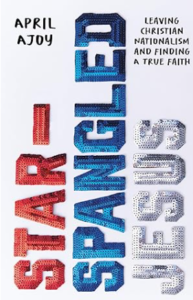I had been interested in the various conspiracy theories of the Kennedy assassination for a long time. Then in a trip to Dealey Plaza in 2013 I put those questions to rest, as I wrote about on this blog at the time. My interest was recently rekindled when I saw the cover of a new book by Alexandra Zapruder – Twenty-Six Seconds – A Personal History of the Zapruder Film. I had to read it.
Twenty-Six Seconds doesn’t propose any new theories on what happened on that fateful day in Dallas November 22, 1963. Instead the book gives a fascinating account of an ordinary citizen, Abraham Zapruder, and the ordeals he and his family went through as a result of Zapruder’s shocking home movie showing the death of the President in vivid detail. The author, Alexandra Zapruder, is Abraham Zapruder’s granddaughter. Though Alexandra was not born until six years after the assassination, she skillfully tells the Zapruder story through interviews with family members and other key players involved in making the Zapruder film the most famous home movie ever recorded.
I liked best the human stories in the book. “At some point over coffee that morning, Lillian asked Abe if he had brought his movie camera from home, as he had said he was planning to do a few days before,” Alexandra relates the conversation between Abraham and his wife the morning of the assassination. “Well, no, actually, he hadn’t. He had given up on the idea at the last minute, thinking that with the crowds packing the motorcade route, he would never get near enough to see, let alone film the president,” Alexandra writes in describing Abraham’s reply. Lillian eventually convinced her husband to retrieve his camera. In reading about the turmoil Abraham and his family went through as a result of the film, I wondered if Abraham had later wished he had left his camera at home that day.
Alexandra Zapruder did her homework in writing Twenty-Six Seconds. The book is very well researched, with detailed accounts of the legal struggles regarding ownership of the film. I did not find the legal details as interesting as the people stories, but I did feel these details were necessary to tell the complete history of Abraham’s home movie. “The film was but one small element in the vast, overwhelming coverage of the president’s death,” Alexandra writes in describing the growing importance of Abraham’s work. “In later years, as the grief for the president waned and questions remained about his death, the film would grow and change in significance until it would become almost one with the assassination itself.”
“I must have heard my mother say a hundred times,” Alexandra writes. “Your grandfather should have been famous for who he was, for being a good person and a funny, wonderful man, and not for the film.” Twenty-Six Seconds does achieve the goal of revealing the human side of Abraham Zapruder. At the end the book poses a question for the reader to ponder – “After learning how Abraham Zapruder struggled to reconcile the moral dilemma of selling the film, how do you think you might have behaved under those same circumstances?” Hmmmm, I’m sure I would not have handled the situation with the same grace and wisdom as Abraham Zapruder did.




